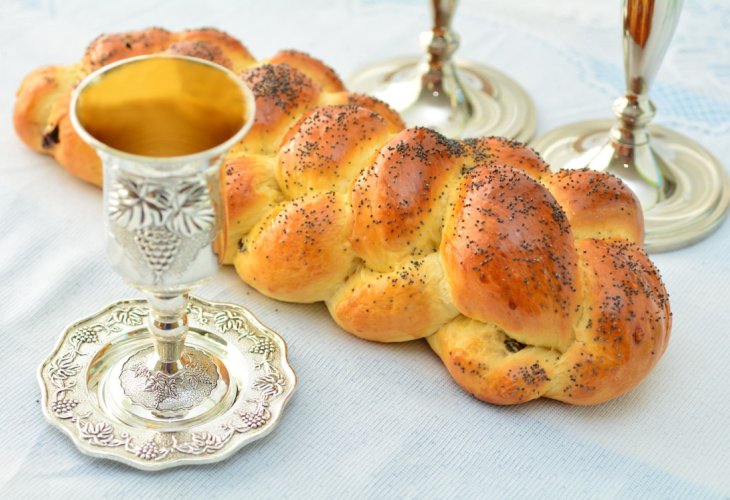Faith
Delighting in Shabbat – The Path to Blessing, Faith, and Abundance
How honoring Shabbat with food, clothing, and peace in the home opens the gates to divine blessing and lasting prosperity
 (Illustration: shutterstock)
(Illustration: shutterstock)Rabbi Yochanan said in the name of Rabbi Yosei: “Whoever delights in Shabbat is granted a boundless inheritance.” Similarly, Rav Yehuda said in the name of Rav: “Whoever delights in Shabbat is granted the desires of his heart.”
Our Sages promise that if we honor Shabbat with special and delicious food, beautiful and unique clothing, and even special lights that illuminate the home on Shabbat, then the Creator will fulfill the desires of our hearts for good — even granting a spacious and comfortable home.
The Chazon Ish, in his book Emunah U’Bitachon, writes about people who “whistle” about faith — meaning they talk about it lightly but don’t truly live it. I can explain this with a personal story from a lecture I gave on faith.
During the class, a man stood up and said, “Rabbi, why do we need to learn about faith? We already know that God is the Cause of all causes, and that there is no power in the world besides Him.”
I was pleased to hear this and replied, “Wonderful. I actually need a loan to build a synagogue. Surely, if you help us, the ‘Cause of all causes’ will repay you — after all, the synagogue belongs to Him.”
The man sat down and said, “I’m sorry, but my bank account is frozen, and I myself need a loan.” This is a classic example of someone who talks about faith, but whose actions do not match his words.
Showing Faith Through Action
When we buy special items for Shabbat that we don’t buy during the week, we demonstrate our faith in God. After all, the Talmud (Beitzah 16a) records God’s promise: “Borrow on My account, have faith in Me, and I will repay.” If a person is afraid to spend generously for Shabbat, he is essentially saying to God, “I’m sorry, I don’t believe You will keep Your promise.”
If we want to show God that our faith in Him is complete and genuine, it must be reflected in our actions.
Oneg Shabbat (delighting in Shabbat) is not an easy mitzvah. It requires preparation — such as thinking about the foods that the family enjoys and buying them especially for Shabbat: candies, cakes, unique ice creams, or special dishes that certain family members love. It also involves setting aside elegant, comfortable clothing, high-quality linens, and fine tableware — no matter the price — so that on Shabbat we feel like royalty. We should not worry about the cost, because when God gives His word, He keeps it.
A Story from New York
I once heard a story first-hand about a wealthy Jewish family in New York who often host yeshiva students for Shabbat.
One week, a student I know stayed with them. Before the meal, he offered to help set the table and began moving some of the fine china nearby. Suddenly, the hostess stopped him and said, “These dishes aren’t special enough for Shabbat.”
When he asked where the Shabbat dishes were, she pointed to another set and explained, “These are for Shabbat — they’re made of 24-karat gold.”
During the meal, the host poured wine for the guests and said, “This wine is from a special vineyard in France, owned by a friend of mine. Each bottle costs a thousand dollars.” The student thought to himself, This cup of wine in my hand is worth a hundred dollars. I could probably sell it in the marketplace.
When I heard this story, the words of the Talmud (Shabbat 119a) became crystal clear: “How did the wealthy of the diaspora merit their wealth? By honoring the Shabbat.”
A Vessel for Blessing
The last Mishnah in Tractate Uktzin teaches: “The Holy One, blessed be He, found no vessel that holds blessing for Israel except peace, as it is said: ‘God will give strength to His people; God will bless His people with peace.’”
Sometimes blessing comes to a person, but he still needs a vessel to hold it — and that vessel is peace. In a home where there is gossip and slander, causing the opposite of peace, even if blessing arrives, it will not remain — because the vessel to hold it is missing.
As King David said: “Who is the person who desires life, loves days to see good? Guard your tongue from evil and your lips from speaking deceit.”
A Jew who wants long life, protection from illness, and to see goodness, should increase peace among the Jewish people.

